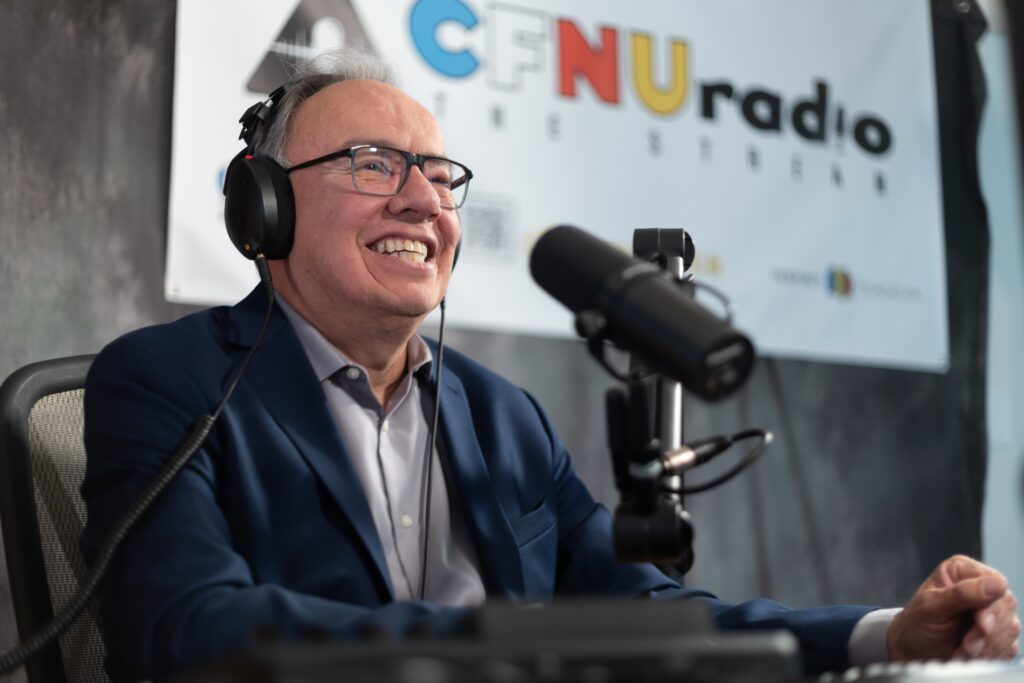Do you like telling stories? Are you interested in podcasting, radio, TV, and other forms of communication? Do you want to experience learning in an Indigenous environment, with smaller classes and a family-like feel?
The Indigenous Journalism and Communication Arts (INCA) program provides a foundation for multimedia storytelling and communications that is grounded in Indigenous history, languages, and worldviews. We offer the following exciting opportunities for all interested students:
All courses include hands-on writing, media production training, and real-life working experiences in communications offices and news outlets. In addition, students gain valuable experience producing podcasts and broadcasts for our campus radio station, CFNU The Stream. Students also take courses in Indigenous media ethics, Indigenous media history, business communications and Indigenous media business development. Through the four-year degree option, students also learn an Indigenous language.
Students graduate from INCA with industry connections, a full portfolio of media projects, and the ability to communicate Indigenous stories and perspectives across cultures.
Students take INCA courses because:
Alumni have found successful careers as communicators for organizations seeking to reach Indigenous audiences, including businesses, First Nations governments, community-based organizations and public sector offices. INCA graduates have also distinguished themselves as news storytellers at APTN, CBC, Global, Rawlco Radio, MBC Radio, Eagle Feather News and the Regina Leader-Post. In addition, alum have also found rewarding work in communications across Indigenous and mainstream government and community organizations.

Notable alumni over the years include Pulitzer prize-winning investigative journalist Connie Walker, CTV assignment editor Nelson Bird, APTN News host Creeson Agecoutay, Eagle Feather News managing editor Kerry Benjoe, CBC North managing director Mervin Brass, and many more.
To qualify for admission to INCA, students must be eligible for admission to the First Nations University of Canada/University of Regina. Proficiency in English is a requirement along with basic computer skills.
See our students in action at www.cfnuradio.ca
View course offerings and additional program information at www.incaonline.ca
Minimum 65% average using the following courses:
INCA has a microsite that provides in-depth information on courses, careers, student support and what you need to get started in the Communications field! Click here to explore INCA Online.
INCA produced the “Words of Wisdom” podcast which aired on National Aboriginal Day 2020 on MBC Radio. The podcast includes stories about late Elder Audrey Cochrane, the FNUniv Art Collection, faculty members Blair Stonechild, Solomon Ratt and Audrey Dreaver.
We welcome you all to have a listen.